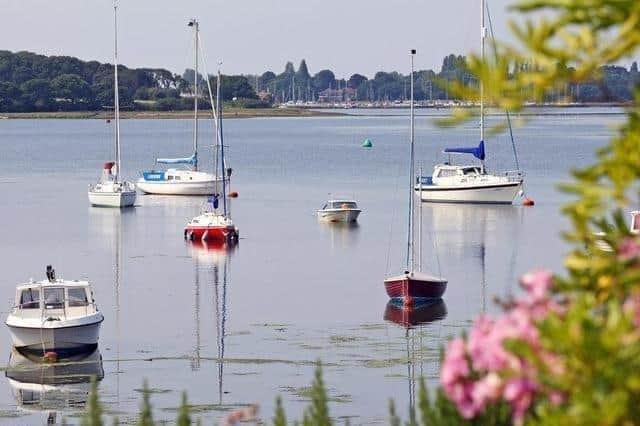Southern Water responds to Greenpeace claims that Chichester Harbour has been 'flooded' with sewage
and live on Freeview channel 276
Citing data from their investigative unit Unearthered, Greenpeace claims sewage overflow pipes discharged more than 300,000 hours of sewage in sensitive wildlife habitats across the UK last year.
Mapping water company data on sewage on sites of special scientific interest, special areas of conservation, special protected areas and Ramsar sites, they claim to have painted a picture of sewage spills across the UK.
Advertisement
Hide AdAdvertisement
Hide AdThe pressure group’s data includes information from the Chichester and Langston Harbour protected area and Ramsar, which they claim was subject to 3,279 hours of sewage in 2022. To see Unearthed’s full report, click here.


Megan Corton Scott, Political Campaigner for Greenpeace UK, said these are “casualty figures from a war which nature is losing badly."
She continued: "Beloved lakes, beaches and rivers, rare wildlife habitats, sites of special scientific interest are being sacrificed so water company bosses and shareholders can continue to reap huge profits. The idea that the sewage industry could be shamed into doing the right thing has been tried and failed - nothing matters to them except profit. The only way to force them to clear up their mess is to make all of their dividends and bonuses dependent on actual results. Instead of long-term targets and empty threats, ministers should actually force the water companies to do the job we pay them for, starting now.”
Now, a spokesperson for Southern Water has responded to Greenpeace UK’s claims. “We share our communities’ passion for the environment and we work very closely with the Environment Agency, who assess outfalls for environmental risk potential, and we ensure our stormwater outfalls comply with strict permits and are located and managed appropriately,” said Nick Mills, Head of Southern Water’s Clean Rivers and Seas Task Force.
Advertisement
Hide AdAdvertisement
Hide Ad“These stormwater outfalls are used when the system is overloaded with surface and groundwater, so homes, schools, hospitals, and communities are not flooded. Furthermore, such discharges are heavily diluted with rainwater.
“We have prioritised sensitivity of watercourses when rolling out Event Duration Monitors (EDM) which are now at almost 100 per cent coverage.
“We are working extremely hard and investing heavily to reduce their use across our region and are already exceeding the government’s own reduction targets.”